February 18, 2023
Scholars, Parents Attend Engaging Humanity Class on Sexuality
By Joy Rojas
Though often spoken about in hushed tones and with some degree of awkwardness, the subject of sexuality sparked open, honest, and engaging discussions in the latest Humanity Class organized on February 12 at the Buddhist Tzu Chi Campus in Sta. Mesa, Manila.
It’s a timely topic with alarming statistics. Declared a national social emergency in 2019, teenage pregnancy is on the rise—and mothers are getting younger. Only weeks ago, the Philippine Statistics Office reported that the 2,299 girls who gave birth in 2021 were between the ages of 10 to 14. Moreover, 6-7 percent of babies born to adolescent girls from 2016 to 2020 were fathered by men 10 years older than the mothers, while a majority of the male sexual partners were 3-5 years older than the teen moms.
Deeming it an appropriate subject for the month of love, Tzu Chi Education Committee Head Rosa So invited resource persons to prepare talks specifically for Elementary and Grades 7-8 scholars; Grades 9-10, Senior High School, and College scholars; and scholars’ parents.
In “Safety Must Start In You: Empowering Protective Behaviors in Children,” Tzu Chi volunteer and medical social worker Lyka Tigas taught elementary scholars how to respond when they find themselves in abusive situations.
“There are a lot of kids who are not aware that they are being abused. Many are below the age of 18 and more often than not, the perpetrator is a member of the family,” she says. “By making them aware about the different types of abuse, they can better protect themselves.”
For Lyka, protecting oneself starts by learning to say “no.” “Oftentimes, kids this age can’t say no to their peers because they want to fit in and be accepted. They should decide for themselves, or at least make decisions that will protect them from danger.”
If an audience of teens and 20-somethings appreciated speaker Mitos Rivera’s talk on teen sexuality in relation to “Deciphering One’s Self and Identity,” it’s because she made them feel safe, comfortable, and unjudged.
“Every person is called to union,” says Mitos, country representative at the Institute for Reproductive Health at Georgetown University. “We all have needs for intimacy—not necessarily physical, but a longing to have companions, friends, and soulmates. It’s a human need that we have to address by building ourselves first and letting relationships come out of that fullness of being. To the teens: Understand yourself first. You’re going through a transition phase. Develop yourself. Have your own set of values and beliefs, but also be open to guidance.”
Scholars also responded favorably to how she defined sexuality as beyond physical sex and gender. “It encompasses the total being of a person. It’s aligned with love and responsibility,” she says.
This definition struck Sydney Alipao, a second-year BA Journalism major at the University of the Philippines Diliman. “I realize that sex education is all about the technicalities of how the male and female reproductive systems work,” says Sydney, 20. “It needs to address the emotional and personal aspects too. Without sexual maturity, teenage pregnancies will continue to happen.”
As the speaker assigned to scholars’ parents, health sector specialist Neoman Roxas sought to make Moms and Dads approachable to their kids when it comes to the topic of sex.
“Sex is not an issue talked about between parents and their children. This needs to be corrected,” says Neoman, who gave a talk on “Empowering Parents towards Prevention of Child Abuse and Exploitation.” “I really tried to convey to them their role as teachers to children who are changing not just physically but emotionally and socially. Parents need to have more patience and understanding—and to reach out and listen.”
Perhaps everyone can take their cue from Bernard Nocos, father to Grade 10 Tzu Chi scholar Emerald and an example of what could happen when you enter an intimate relationship unprepared.
At 21, he and his girlfriend discovered they were pregnant. Neither was ready to raise a family: he’s a high school graduate; she finished second year college. But they tried to make it work, and today, the parents of two kids experience the usual challenges of a family with limited means. Bernard is a sewer while his wife is a janitress.
“My wife and I are open to our son and daughter about sexuality,” he says. “If you don’t explain things to them, they might get pregnant early. This will affect their future because they’ll be focused on raising their baby. And what if they’re poor or don’t have money? They’ll be forced to stop school. When you enter into a relationship, you should be aware of your obligations. Do you have a job, a home, income?”
“That’s why I tell my kids, ‘Don’t do what your Mama and I did,’ because I realized we were too young to get married,” he adds. “And if you still want to get married early, think really hard about it because you’ll have to deal with your choices. As parents, we can’t tell you what to do. We can only guide you.”
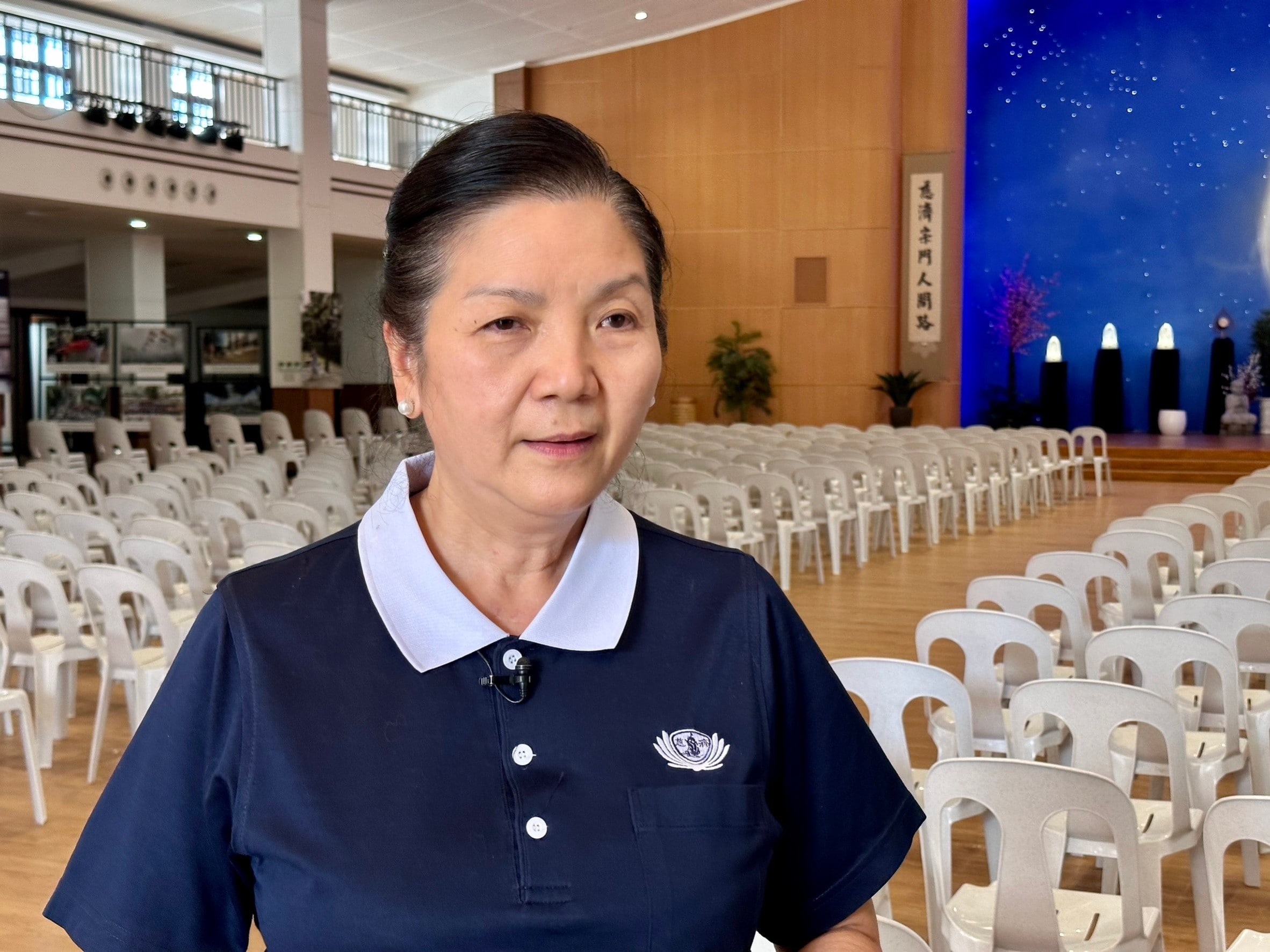 Tzu Chi Education Committee Head Rosa So chose sexuality as a subject for February’s Humanity Class because of its relevance to youth. The Philippine Statistics Office recently reported that the 2,299 girls who gave birth in 2021 were between the ages of 10 to 14.【Photo by Harold Alzaga】
Tzu Chi Education Committee Head Rosa So chose sexuality as a subject for February’s Humanity Class because of its relevance to youth. The Philippine Statistics Office recently reported that the 2,299 girls who gave birth in 2021 were between the ages of 10 to 14.【Photo by Harold Alzaga】
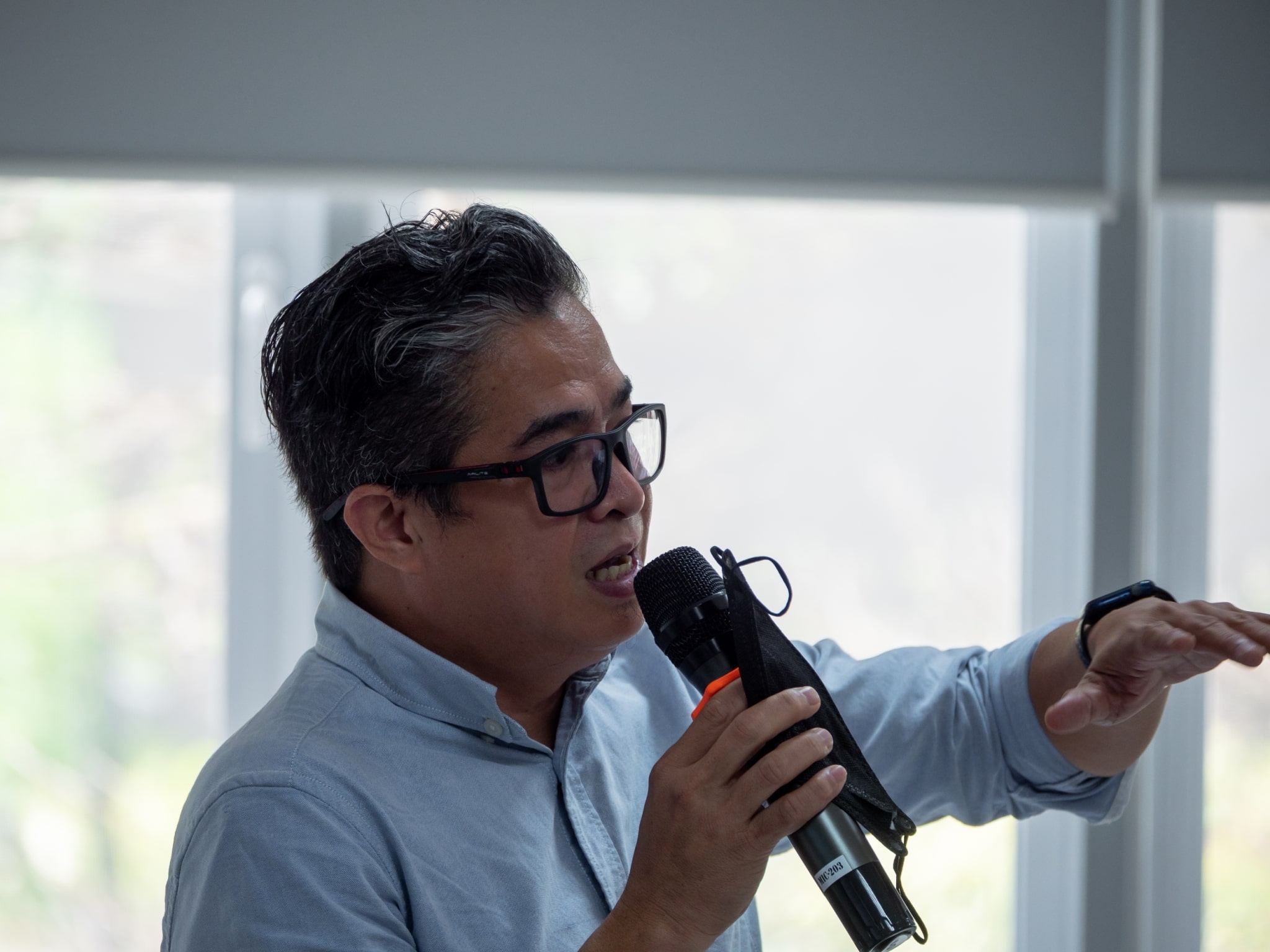 Health sector specialist Neoman Roxas encouraged parents to be open to their children about the topic of sex. “I conveyed to them their role as teachers to children who are changing not just physically but emotionally and socially. Parents need to have more patience and understanding—and to reach out and listen.” 【Photo by Daniel Lazar】
Health sector specialist Neoman Roxas encouraged parents to be open to their children about the topic of sex. “I conveyed to them their role as teachers to children who are changing not just physically but emotionally and socially. Parents need to have more patience and understanding—and to reach out and listen.” 【Photo by Daniel Lazar】
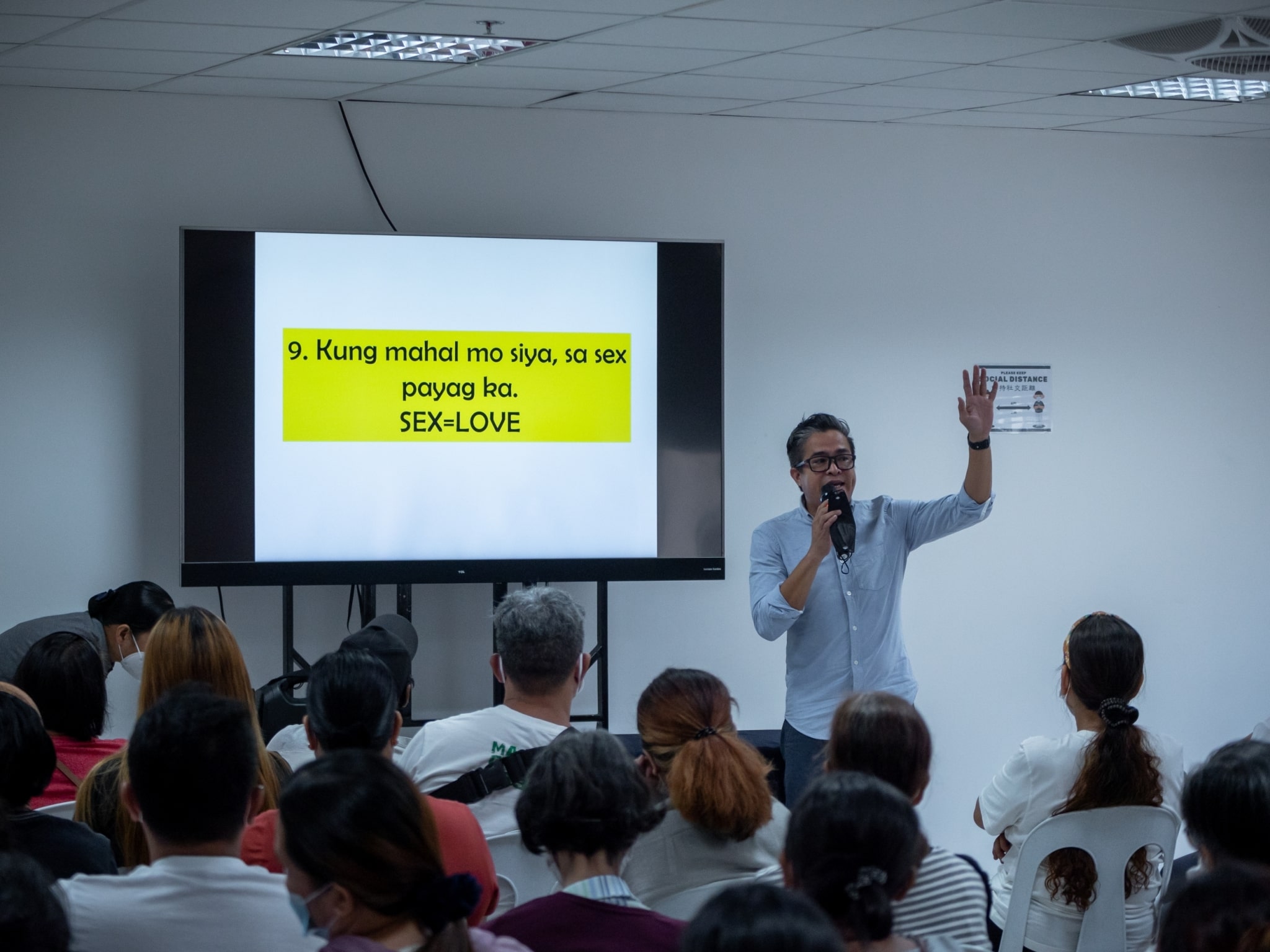 Health sector specialist Neoman Roxas began his talk by dispelling myths and misconceptions on sexuality. 【Photo by Daniel Lazar】
Health sector specialist Neoman Roxas began his talk by dispelling myths and misconceptions on sexuality. 【Photo by Daniel Lazar】
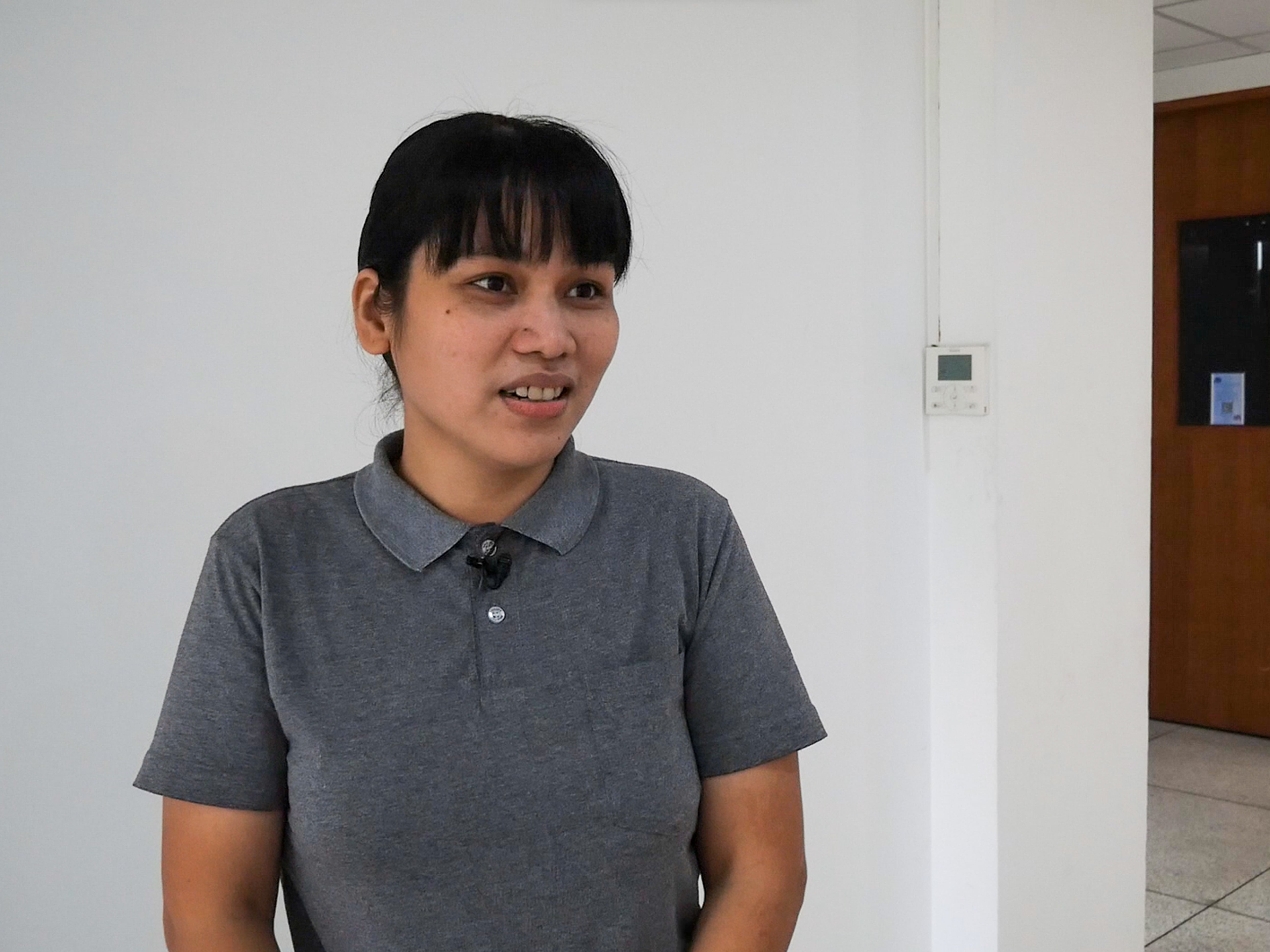 Tzu Chi volunteer and medical social worker Lyka Tigas gave her young audience tips on how to respond to abusive situations. “There are a lot of kids who are not aware that they are being abused. Many are below the age of 18 and more often than not, the perpetrator is a member of the family. By making them aware about the different types of abuse, they can better protect themselves.”【Photo by Harold Alzaga】
Tzu Chi volunteer and medical social worker Lyka Tigas gave her young audience tips on how to respond to abusive situations. “There are a lot of kids who are not aware that they are being abused. Many are below the age of 18 and more often than not, the perpetrator is a member of the family. By making them aware about the different types of abuse, they can better protect themselves.”【Photo by Harold Alzaga】
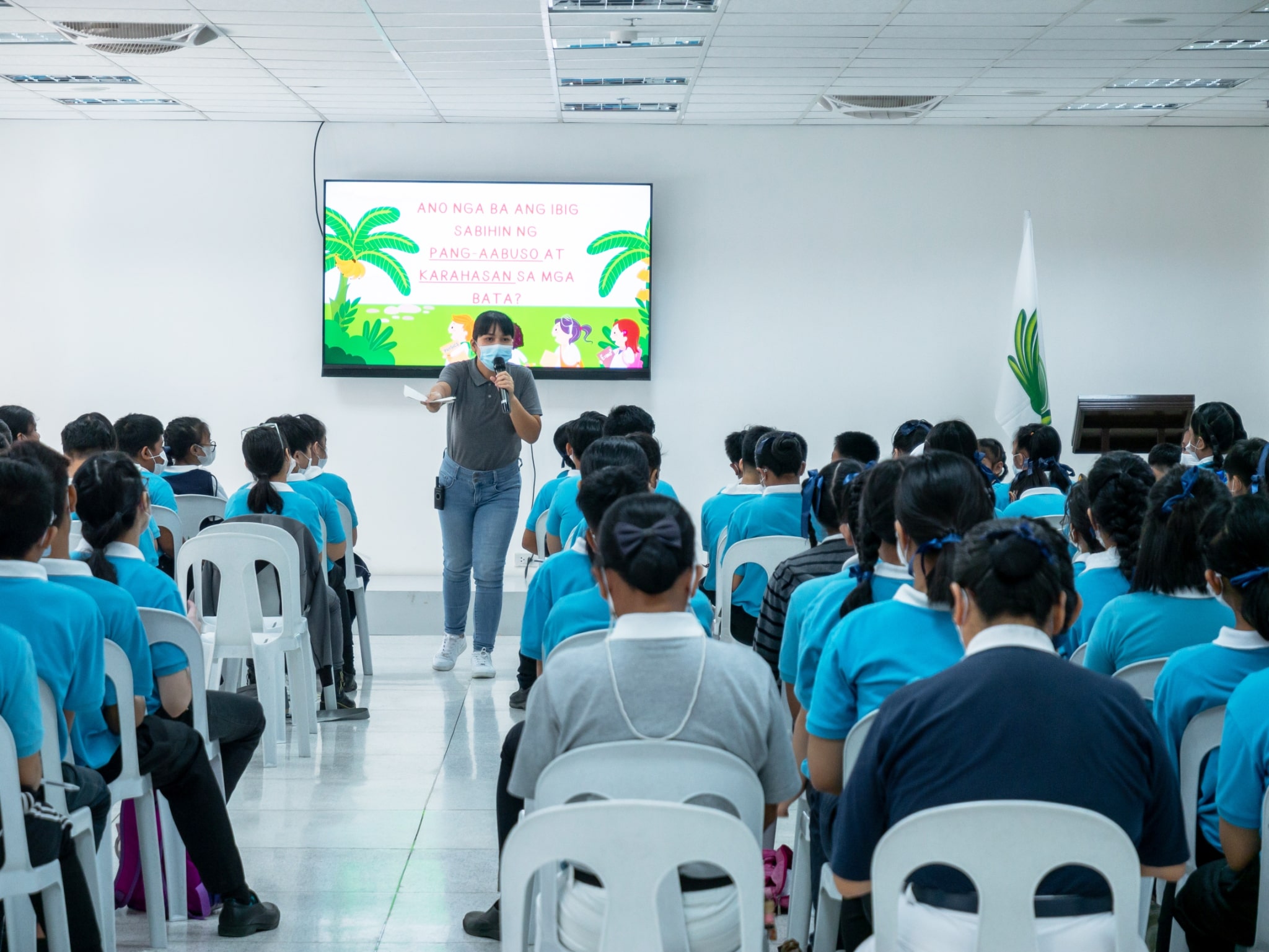 Elementary and Grades 7-8 scholars listen intently as Tzu Chi volunteer and medical social worker Lyka Tigas delivers the talk “Safety Must Start In You: Empowering Protective Behaviors in Children.” 【Photo by Daniel Lazar】
Elementary and Grades 7-8 scholars listen intently as Tzu Chi volunteer and medical social worker Lyka Tigas delivers the talk “Safety Must Start In You: Empowering Protective Behaviors in Children.” 【Photo by Daniel Lazar】
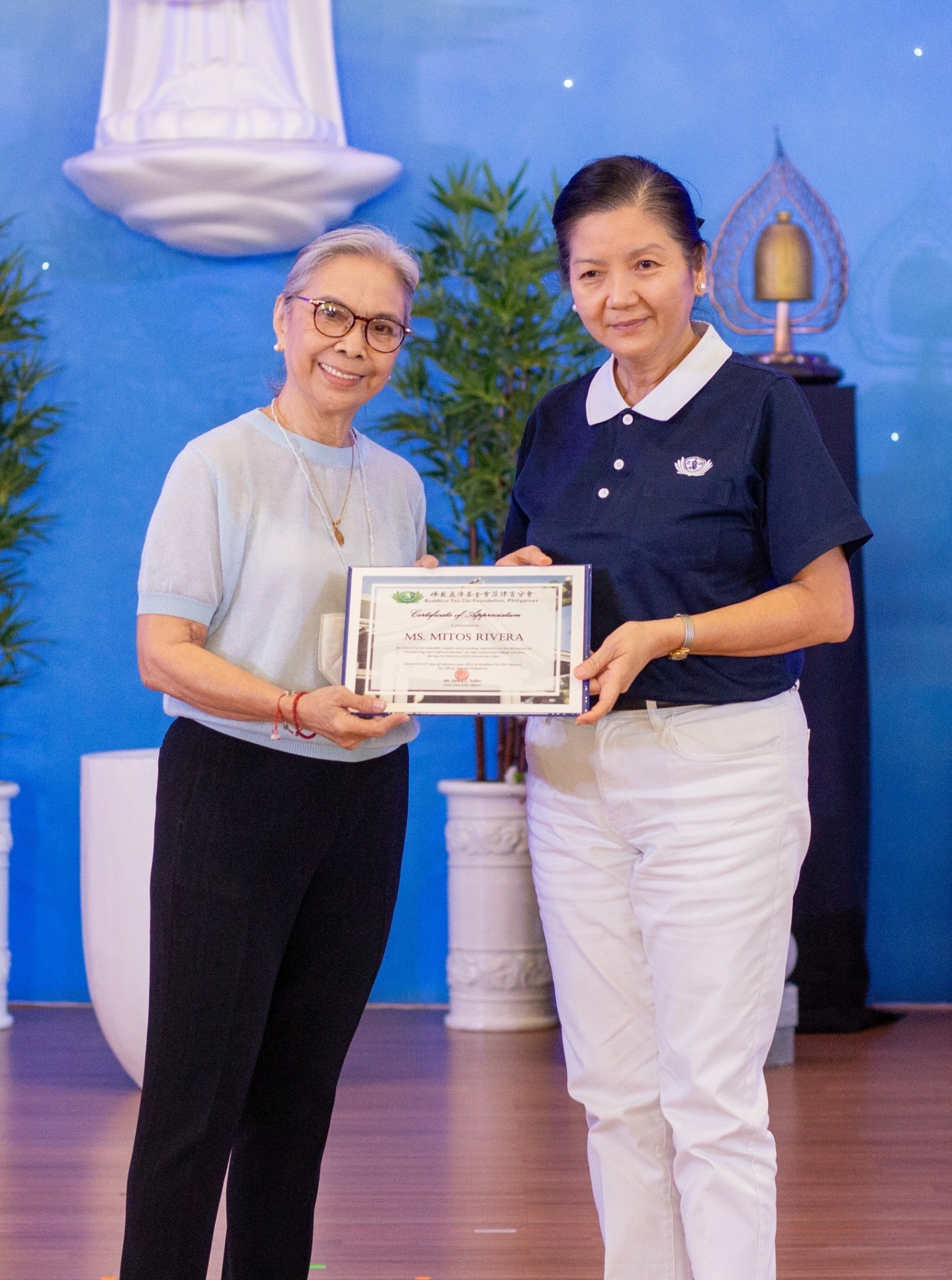 Mitos Rivera (left), guest speaker for Grades 9-10, Senior High School, and College scholars, receives a certificate of appreciation from Tzu Chi Education Committee Head Rosa So. 【Photo by Marella Saldonido】
Mitos Rivera (left), guest speaker for Grades 9-10, Senior High School, and College scholars, receives a certificate of appreciation from Tzu Chi Education Committee Head Rosa So. 【Photo by Marella Saldonido】
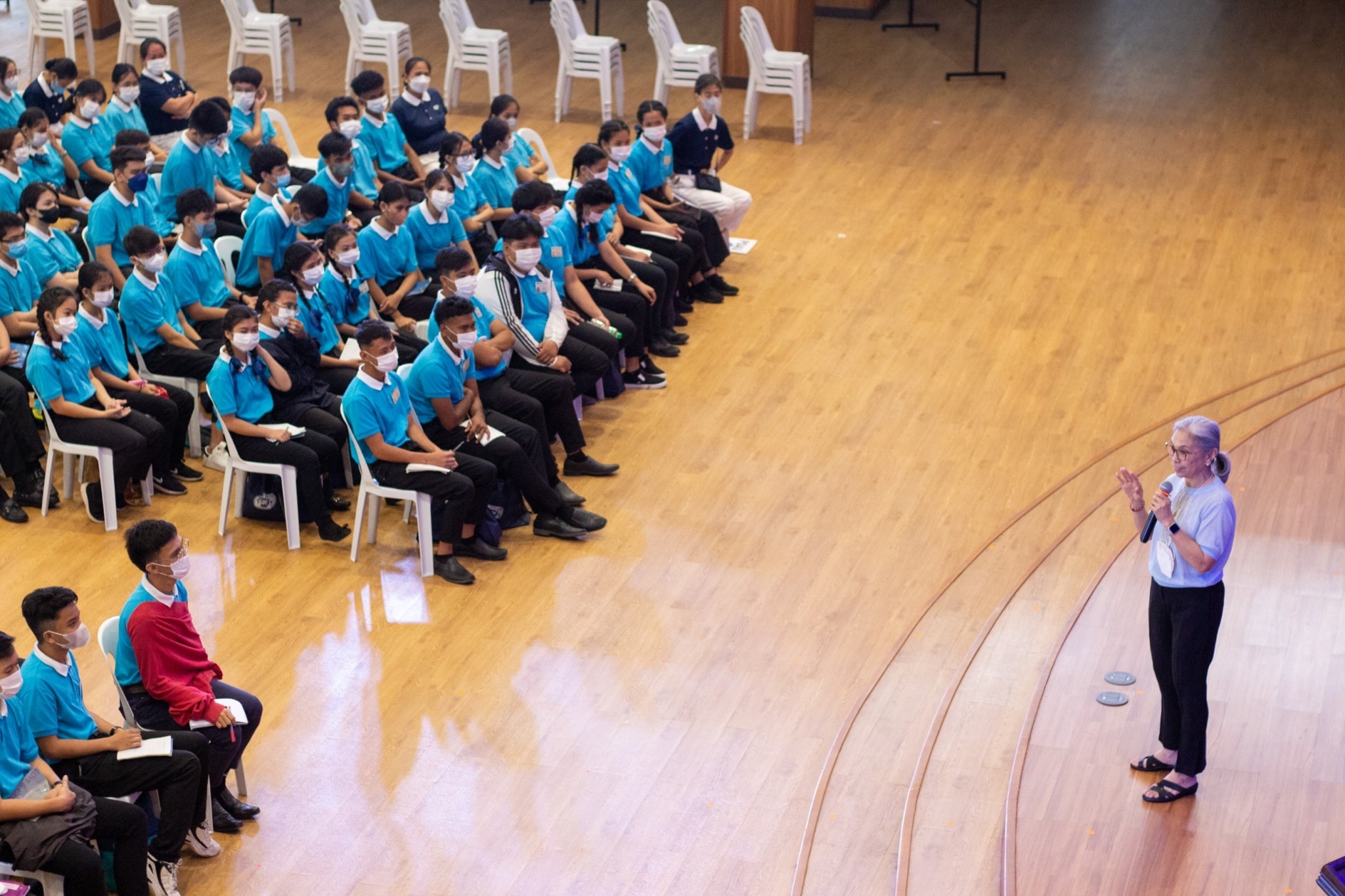 Mitos Rivera, country representative at the Institute for Reproductive Health at Georgetown University, addresses teens and 20somethings at the Jing Si Auditorium. 【Photo by Marella Saldonido】
Mitos Rivera, country representative at the Institute for Reproductive Health at Georgetown University, addresses teens and 20somethings at the Jing Si Auditorium. 【Photo by Marella Saldonido】
 “Sex education is all about the technicalities of how the male and female reproductive systems work,” says Sydney Alipao, a second-year BA Journalism major at the University of the Philippines Diliman. “It needs to address the emotional and personal aspects too. Without sexual maturity, teenage pregnancies will continue to happen.” 【Photo by Harold Alzaga】
“Sex education is all about the technicalities of how the male and female reproductive systems work,” says Sydney Alipao, a second-year BA Journalism major at the University of the Philippines Diliman. “It needs to address the emotional and personal aspects too. Without sexual maturity, teenage pregnancies will continue to happen.” 【Photo by Harold Alzaga】
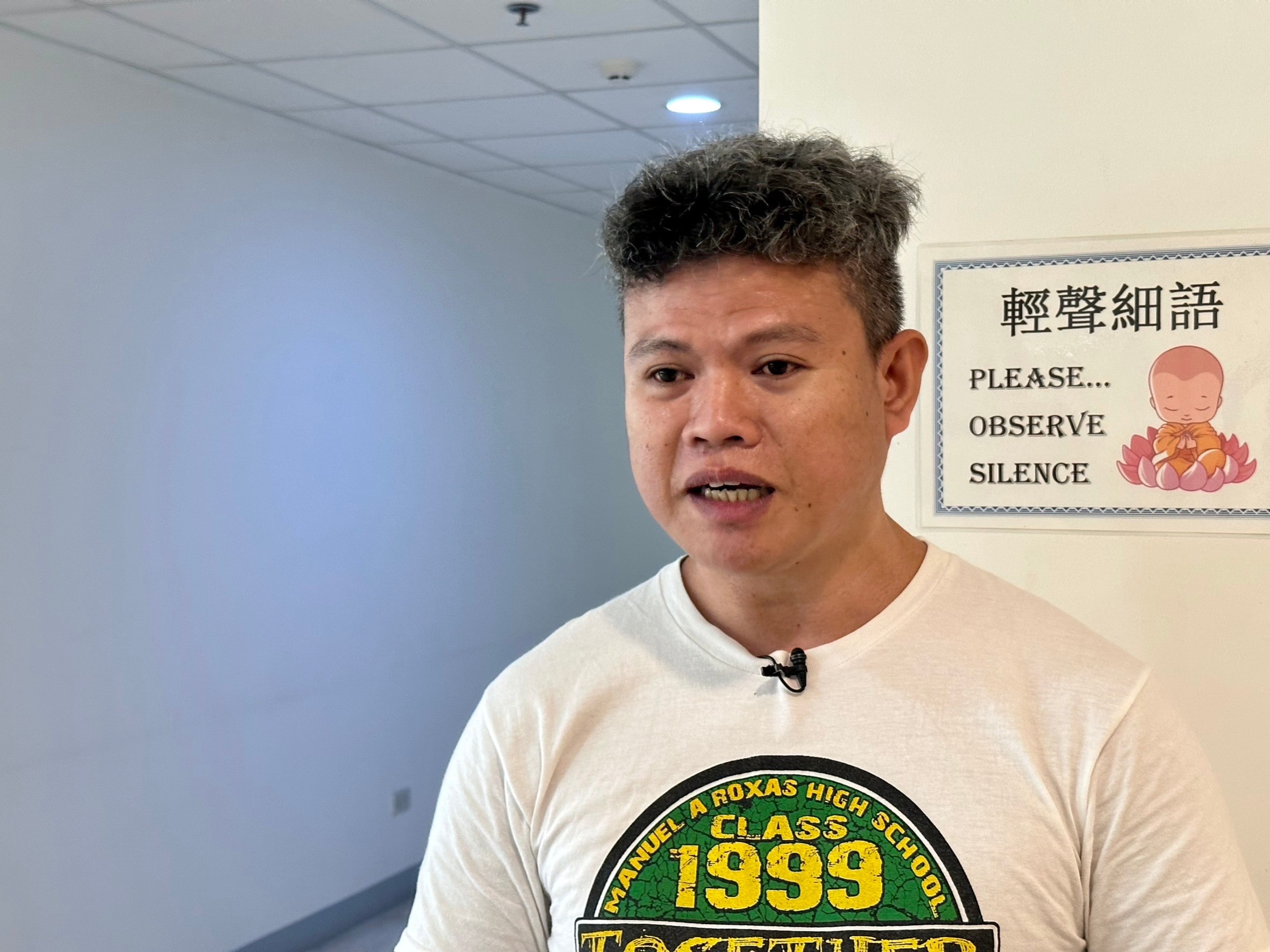 Bernard Nocos, father of Grade 10 Tzu Chi scholar Emerald, isn’t embarrassed to discuss sexuality with his kids. “I realized I was too young to get married,” he says. “But if my kids still want to get married early, they should think really hard about it because they’ll have to deal with their choices. As a parent, I can’t tell them what to do. I can only guide them.”【Photo by Harold Alzaga】
Bernard Nocos, father of Grade 10 Tzu Chi scholar Emerald, isn’t embarrassed to discuss sexuality with his kids. “I realized I was too young to get married,” he says. “But if my kids still want to get married early, they should think really hard about it because they’ll have to deal with their choices. As a parent, I can’t tell them what to do. I can only guide them.”【Photo by Harold Alzaga】





